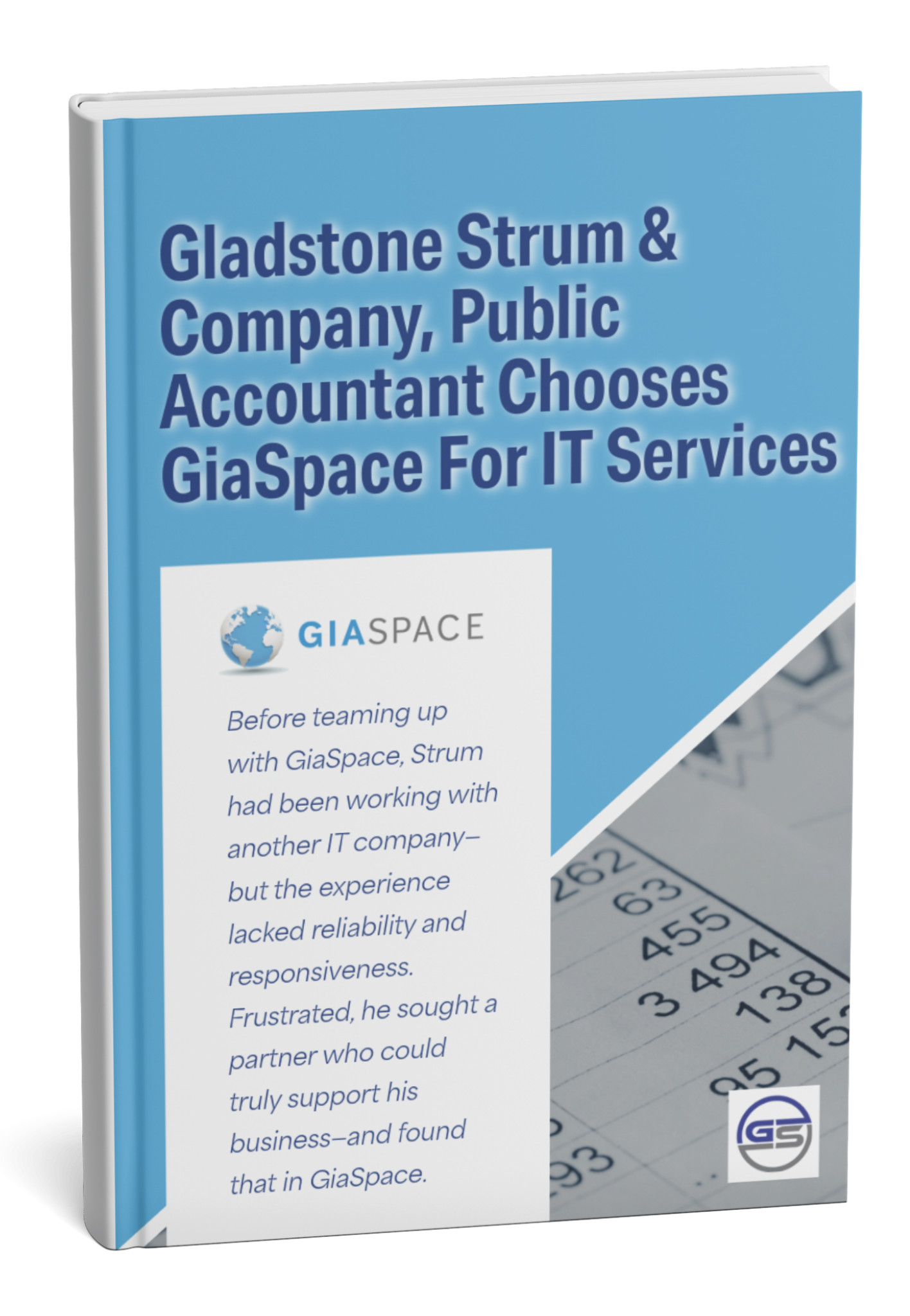Discover how EDI Integration can benefit your organization.
Ensure your EDI works seamlessly. Discover how GiaSpace’s expert managed services provide vital support for secure and efficient EDI systems integration.
| Statistic/Fact | Value | Source (Link) |
| Average cost saving per transaction with EDI (vs. manual) | 90% (estimated) | Remedi Electronic Commerce Group |
| Reduction in manual data entry errors with EDI | 70-80% (est.) | CAI Software |
| % of businesses using EDI that plan to increase usage | 70% (estimated) | Celigo (refers to 72% in B2B companies) |
What Exactly is EDI Systems Integration and Why Does Your Business Need It?
In today’s fast-paced business world, efficiency and accuracy are paramount. Electronic Data Interchange (EDI) Systems Integration is the automated, computer-to-computer exchange of business documents in a standardized electronic format between trading partners. Think of it as a universal language that allows different computer systems to “talk” to each other without human intervention, replacing traditional paper-based processes like purchase orders, invoices, shipping notices, and more.
Your business needs EDI for several critical reasons: it’s not just about going paperless. EDI streamlines operations by automating repetitive tasks, drastically reducing manual errors, and accelerating transaction cycles. This leads to faster order processing, quicker payments, and a more responsive supply chain. For any business dealing with a significant volume of transactions, particularly those in manufacturing, retail, logistics, or healthcare, EDI is no longer a luxury—it’s a fundamental requirement for maintaining competitiveness, fostering strong trading partner relationships, and achieving operational excellence in a digital-first economy.
How Does Seamless EDI Integration Benefit Your Supply Chain & Business Operations?
The true power of EDI lies in its ripple effect across your entire supply chain and daily business operations. A smoothly integrated EDI system doesn’t just cut costs; it creates a more agile, accurate, and responsive enterprise.
Here’s how seamless EDI integration provides tangible benefits:
- Accelerated Business Cycles: Exchange documents like purchase orders and invoices in minutes, not days, speeding up order-to-cash and procure-to-pay cycles.
- Reduced Manual Errors: Automated data exchange virtually eliminates transcription errors inherent in manual data entry, leading to fewer disputes, chargebacks, and returns.
- Improved Data Accuracy & Visibility: Real-time, accurate data ensures that inventory levels, shipment statuses, and financial records are always up-to-date, providing better insights for decision-making.
- Enhanced Operational Efficiency: Employees are freed from tedious, repetitive data entry, allowing them to focus on more strategic, value-added tasks.
- Stronger Trading Partner Relationships: Reliable and timely information exchange builds trust, improves collaboration, and often leads to preferential treatment from partners.
- Cost Savings: Significant reductions in paper, printing, postage, archiving, and manual labor expenses contribute directly to your bottom line.
- Better Compliance: Standardized formats and audit trails make it easier to meet industry-specific regulations and avoid costly penalties.
Ultimately, EDI integration transforms your supply chain into a lean, efficient machine, capable of responding rapidly to market demands and achieving sustained growth.
What Are the Common EDI Integration Challenges Faced by Businesses, Especially SMBs?
While the benefits of EDI are clear, implementing and managing it can present significant hurdles, particularly for small to medium-sized businesses (SMBs) with limited in-house IT resources. Understanding these challenges is the first step toward overcoming them.
Here are the common EDI integration challenges:
| Challenge | Description | Impact on Business |
| Complex Mapping & Translation | Translating internal data formats (e.g., from an ERP system) into diverse EDI standards (X12, EDIFACT, etc.) for each trading partner. | Errors in data exchange, failed transactions, chargebacks, significant time spent on manual corrections. |
| Varying Trading Partner Requirements | Each trading partner may have unique EDI document versions, communication protocols, and specific data requirements. | Slow and complex onboarding of new partners, constant adjustments, increased operational overhead. |
| Keeping Up with Standards & Updates | EDI standards and compliance regulations evolve, requiring continuous updates to systems and processes. | Non-compliance fines, outdated systems, inability to trade with new partners, security vulnerabilities. |
| High Upfront Costs & Maintenance | Investing in EDI software, hardware, and specialized personnel can be prohibitive for many SMBs. | Budget strain, delayed implementation, or reliance on outdated, inefficient systems. |
| Lack of In-House Expertise | Few SMBs have dedicated IT staff with deep knowledge of EDI mapping, troubleshooting, and ongoing management. | Prolonged issue resolution, system downtime, reliance on trial-and-error, increased risk of data errors. |
| Monitoring & Error Resolution | Proactively monitoring EDI transactions for failures and efficiently resolving errors requires constant attention. | Delayed orders/invoices, missed deadlines, damaged trading partner relationships, manual intervention to fix problems. |
| Security Concerns | Ensuring the secure transmission and storage of sensitive business data across various networks and systems. | Data breaches, loss of sensitive information, reputational damage, legal penalties, erosion of customer trust. |
These complexities underscore why many businesses seek expert assistance to navigate the world of EDI successfully.
What Specific Role Should Your Managed Services Provider Play in EDI Integration?
For businesses struggling with the complexities outlined above, a Managed Services Provider (MSP) can be the critical partner in achieving seamless EDI integration. Your MSP shouldn’t just “support” your EDI; they should actively manage and optimize it.
A proactive MSP plays several vital roles in your EDI journey:
- Strategic Planning & Consultation: Guiding you through the initial assessment, helping identify which documents to automate, and developing a roadmap for integration.
- System Design & Implementation: Designing a robust EDI architecture that integrates smoothly with your existing ERP, accounting, and supply chain systems. This includes selecting the right EDI software or cloud platform.
- Trading Partner Onboarding & Management: Handling the technical complexities of connecting with new trading partners, ensuring their unique requirements are met.
- Custom Mapping & Translation: Developing and maintaining the intricate data maps required to translate your internal data into various EDI standards and vice-versa.
- Proactive Monitoring & Troubleshooting: Continuously monitoring EDI transactions for errors, performance issues, and security vulnerabilities, and resolving them quickly.
- Compliance & Updates: Ensuring your EDI system remains compliant with evolving industry standards and regulations, applying necessary updates and patches.
- Security Management: Implementing and maintaining robust security protocols, including encryption and secure transmission methods, to protect your sensitive data.
- 24/7 Support & Disaster Recovery: Providing continuous support and having robust backup and disaster recovery plans in place to ensure business continuity.
An MSP transforms EDI from a potential headache into a strategic advantage, allowing your internal team to focus on core business activities.
How Do MSPs Handle Complex EDI Mapping, Standards, and Trading Partner Onboarding?
The true technical heavy lifting of EDI integration often lies in the meticulous details of data mapping, adherence to diverse standards, and the often-laborious process of onboarding new trading partners. This is where an experienced MSP truly shines.
Here’s a summary of key MSP EDI services:
| Service | Description | Benefit for Your Business |
| Custom EDI Mapping | Developing intricate data transformation rules to convert data between your internal systems (ERP, WMS) and various EDI formats (X12, EDIFACT, etc.). | Ensures seamless, error-free data flow between your systems and trading partners, regardless of their specific requirements. |
| Standards & Version Management | Expertise in diverse EDI standards and their many versions (e.g., X12 4010 vs. 5010), ensuring compatibility with all partners. | Guarantees compliance with trading partner mandates and prevents costly errors due to version mismatches. |
| Trading Partner Onboarding | Managing the end-to-end process of setting up new trading partner connections, including testing, validation, and communication. | Accelerates the process of connecting with new partners, enabling faster revenue generation and expanded business opportunities. |
| Communication Protocol Setup | Configuring secure and reliable data transmission protocols (AS2, SFTP, VANs) to ensure data integrity and security. | Protects sensitive data during transit, reduces security risks, and ensures reliable message delivery. |
| Value-Added Network (VAN) Management | If a VAN is used, the MSP manages the VAN relationship, optimizing costs and ensuring efficient message routing. | Simplifies your EDI infrastructure, often reducing internal overhead and ensuring efficient, secure data exchange with many partners. |
| Document Type Expansion | Assisting with integrating new EDI document types (e.g., 856 ASN, 810 Invoice) as your business needs evolve. | Allows your EDI capabilities to grow with your business needs, supporting a wider range of automated processes and improving supply chain visibility. |
By offloading these highly technical and time-consuming tasks to an MSP, your business gains access to specialized skills and ensures your EDI operates flawlessly.
Beyond Integration: How Do MSPs Ensure Ongoing EDI Monitoring and Error Resolution?
EDI integration isn’t a “set it and forget it” task. For truly seamless and reliable operations, continuous monitoring and swift error resolution are paramount. An effective MSP goes far beyond the initial setup, providing the vigilance necessary to keep your EDI flowing smoothly.
Here’s how MSPs ensure ongoing EDI excellence:
- Proactive Transaction Monitoring: MSPs deploy sophisticated tools to continuously monitor all incoming and outgoing EDI transactions in real-time. This includes tracking document status, verifying successful transmissions, and identifying any failed or delayed messages instantly.
- Automated Alerting Systems: When an error occurs (e.g., a malformed document, a communication failure, a rejected transaction), automated alerts notify the MSP’s expert team immediately, often before your internal team is even aware of an issue.
- Rapid Error Identification & Diagnosis: With deep knowledge of EDI standards and your specific integrations, MSPs can quickly pinpoint the root cause of an error, whether it’s a data mismatch, a communication protocol issue, or a trading partner configuration problem.
- Swift Resolution & Remediation: The MSP team takes immediate action to resolve errors, often correcting data, re-transmitting documents, or directly communicating with trading partners to resolve discrepancies. This minimizes disruption and prevents cascading issues.
- Performance Optimization: Beyond just fixing errors, MSPs analyze EDI performance metrics to identify bottlenecks, optimize processes, and ensure your system is running at peak efficiency.
- Audit Trails & Reporting: Comprehensive logs and reports are maintained, providing full visibility into all EDI activities, which is crucial for compliance, troubleshooting, and performance analysis.
- Preventive Maintenance: Regular checks and system health assessments are performed to prevent common issues before they arise, ensuring system stability and reliability.
This continuous, expert oversight means your EDI system remains a reliable engine for your business, rather than a source of unexpected headaches and operational delays.
Why Choosing an Experienced MSP Like GiaSpace is Crucial for Your EDI Success?
While the benefits of EDI are undeniable, realizing them hinges on successful implementation and ongoing management. For businesses across Florida and beyond, partnering with an experienced MSP like GiaSpace is not just an option; it’s a strategic imperative for EDI success.
Here’s why GiaSpace stands out as your crucial EDI partner:
- Deep EDI Expertise: Our team possesses extensive, specialized knowledge in all major EDI standards (X12, EDIFACT, etc.), complex mapping, and diverse communication protocols. We understand the intricacies that an internal, general IT team might miss.
- Proven Integration Track Record: With years of experience, GiaSpace has successfully integrated EDI systems across various industries, ensuring seamless data flow with a multitude of trading partners. Our expertise translates to faster, more reliable implementations for you.
- Proactive Management, Not Just Support: We don’t just react to problems; we actively monitor your EDI environment 24/7, identify potential issues before they become critical, and implement preventative measures to ensure continuous operation.
- Comprehensive IT Partnership: EDI integration doesn’t happen in a vacuum. As a full-service MSP, GiaSpace ensures your EDI solution is seamlessly integrated with your broader IT infrastructure, including ERP systems, cloud platforms, and cybersecurity protocols.
- Reduced Operational Burden & Costs: We take on the complex, time-consuming tasks of EDI management, freeing up your internal resources and eliminating the need for costly in-house EDI specialists. This leads to significant long-term cost savings.
- Enhanced Security & Compliance: Our robust security measures protect your sensitive EDI data, and our expertise ensures your operations remain compliant with relevant industry regulations, mitigating risks and potential penalties.
- Scalability & Future-Proofing: As your business grows and your trading partner network expands, GiaSpace ensures your EDI system can scale effortlessly, adapting to new demands and technologies without disruption.
Choosing GiaSpace means choosing a partner committed to transforming your EDI from a challenge into a powerful competitive advantage, allowing you to focus on your core business growth.
What Are the Long-Term Strategic Advantages of Outsourcing EDI Management?
Outsourcing EDI management to a specialized MSP like GiaSpace offers benefits that extend far beyond immediate operational efficiency. It provides long-term strategic advantages that position your business for sustainable growth and enhanced market responsiveness.
Consider these strategic benefits:
- Competitive Edge: By leveraging advanced EDI capabilities without the internal burden, your business can onboard new trading partners faster, process orders more efficiently than competitors, and gain a reputation for reliability and speed.
- Focus on Core Business & Innovation: Freeing up internal IT resources from EDI complexities allows your team to dedicate more time and energy to innovation, product development, and customer engagement – activities that directly drive revenue and growth.
- Reduced Risk & Improved Resilience: With expert monitoring, proactive issue resolution, and robust disaster recovery protocols handled by an MSP, your business is less vulnerable to costly data errors, system downtime, and cybersecurity threats.
- Access to Cutting-Edge Technology: MSPs continuously invest in the latest EDI technologies, security solutions, and best practices. By partnering with GiaSpace, you gain access to these advancements without the significant capital expenditure.
- Scalability for Growth: As your business expands or enters new markets, an outsourced EDI solution can seamlessly scale to accommodate increased transaction volumes and a larger network of trading partners, without requiring significant internal IT infrastructure upgrades.
- Enhanced Data-Driven Decision Making: With clean, accurate, and real-time data flowing through your EDI system, you gain superior visibility into your supply chain, inventory, and financial performance, enabling more informed strategic decisions.
- Predictable IT Costs: Outsourcing EDI transforms variable, unpredictable IT costs (e.g., specialist salaries, software licenses, emergency fixes) into predictable, manageable monthly expenses, improving financial planning.
In essence, outsourcing EDI management empowers your business to operate with greater agility, security, and foresight, transforming a complex operational necessity into a powerful strategic asset for long-term success.
Published: Mar 7, 2025







